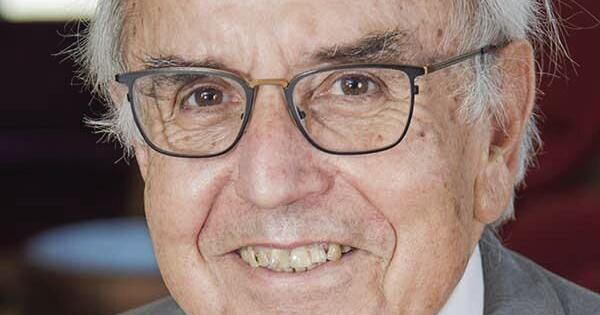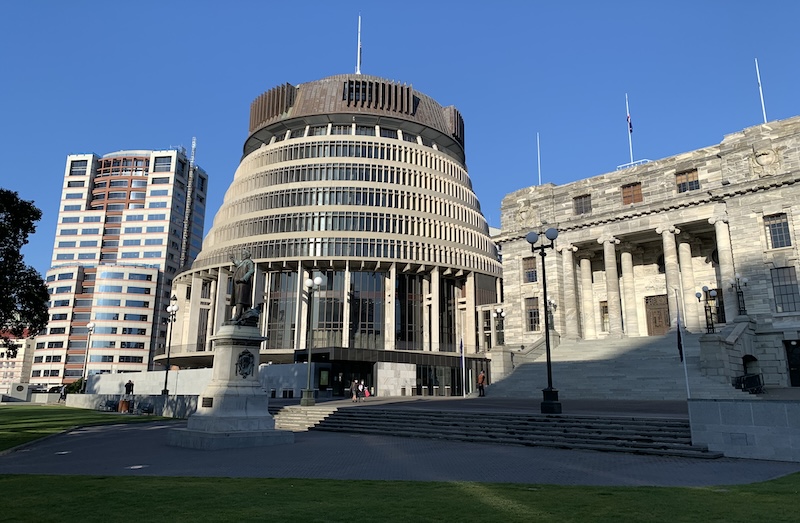British author Sir Arthur Conan Doyle greatly raised the prestige of the lowly detective story with his fictional alter ego Sherlock Holmes. One of Holmes’ most brilliant insights concerned something that was not present. In “Silver Blaze” a dog did not bark.
In a vexing case, what was unheard, what did not happen proved to be the crucial evidence. Likewise, Canada-United States relations remain quietly strong, despite media focus on current disruptions.
The pandemic has created many problems. Canadian truck drivers are protesting COVID-19 restrictions, disrupting commerce generally. In response, anxious Prime Minister Justin Trudeau launched draconian retaliation including forceful arrests.
Canada-U.S. relations overall are hardly free of conflict. President Donald Trump criticized Canada’s dairy industry for promoting protectionism, not coincidentally while in Wisconsin. Lumber production is another source of dispute.
Trump exaggerates readily. Nonetheless, he voiced long-standing disputes. Also highly germane is that farmers represent powerful protectionist lobbies in most countries.
Yet our cooperative structures and practices remain intact. Alliance with Canada was established during the enormous global struggle of World War II. Our partnership reflects the enduring “Special Relationship” between Britain and the U.S. forged by Prime Minister Winston Churchill and President Franklin D. Roosevelt.
Our history was not always collaborative. The Great Lakes were a principal naval battle arena during the War of 1812. Canada provided refuge and sustenance to Confederate saboteurs and spies during our Civil War. The fact that negative history has been so fully overcome testifies to the strength of contemporary bonds.
President John F. Kennedy summed up the Canada-U.S. relationship while addressing the Parliament in Ottawa early in 1961, noting, “Geography has made us neighbors. History has made us friends. Economics has made us partners. And necessity has made us allies.”
Canada’s government professionals traditionally foster cooperation with Britain and the U.S., while heavily represented among the staffs of the United Nations, NATO and the other global intergovernmental and nongovernmental organizations.
Ditchley Park near Oxford is an extremely influential conference center born from the Anglo-American-Canadian tripartite alliance of World War II. When the focus of a meeting is the UN, crisis intervention, humanitarian relief, international law or associated topics, Canada is invariably extremely well represented among participants.
Roosevelt and Churchill held a summit aboard naval warships off Newfoundland, Canada in August 1941, several months before the attack on Pearl Harbor. The result was the Atlantic Charter, foundation for the United Nations.
One vital byproduct was British, Canadian and U.S. scientific cooperation during and after the war. Throughout the war, the Allies planned the UN structure in detail. The former helped achieve victory; the latter promotes stability.
At the end of Kennedy’s 1961 visit to Canada, national security adviser McGeorge Bundy accidentally left behind a briefcase containing a memo where the president had scrawled a note about dealing with “the SOB,” apparently referring to combative nationalist Prime Minister John Diefenbaker. Diefenbaker, enraged, threatened embarrassing public vengeance.
Kennedy pleaded poor penmanship, stating he actually wrote “OAS,” the Organization of American States. At his next press conference, he went out of his way to praise Bundy.
Diefenbaker had a loud bark, like Trump, but therefore stood out. Generally, Canadian leaders have maintained positive ties with the U.S., including Diefenbaker successors Lester Pearson and Pierre Trudeau.
Pierre’s son Justin unfortunately has panicked badly regarding the truckers’ protest. During World War II, Canada’s Prime Minister W.L. Mackenzie King avoided such displays. So did Churchill and Roosevelt.
Arthur I. Cyr is Clausen Distinguished Professor at Carthage College and author of “After the Cold War” (NYU Press and Macmillan). Readers can wrote to him at acyr@carthage.edu.




















Discussion about this post